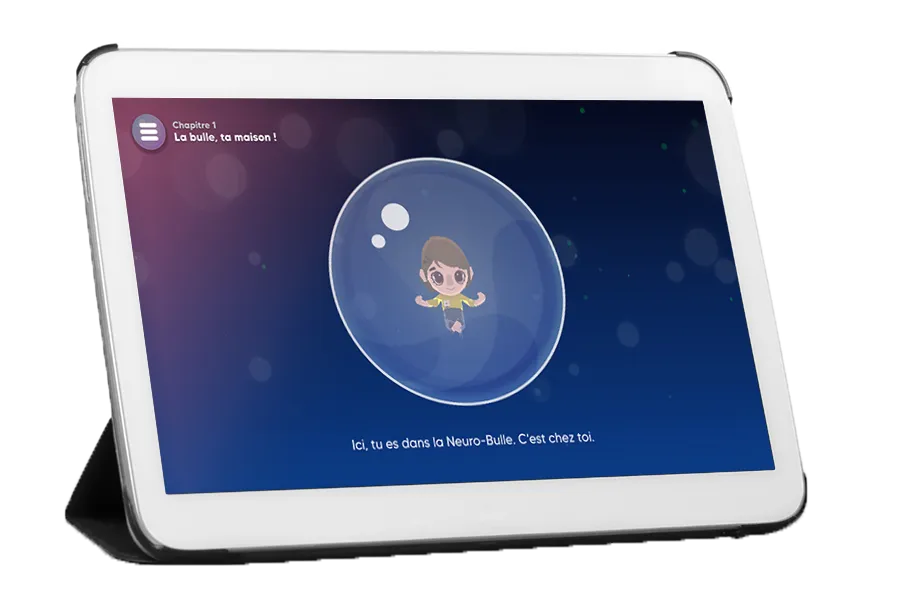Rest assured, all this is entirely normal and part of the brain’s development process. So why do children go through this famous “no” period, and how can we help them in these intense moments? Babaoo Mag has the answers! ⬇️
How long does the Terrible Two last?
Does your 2-year-old give you a run for your money? Does he throw tantrums, disobey you and refuse to listen to you? Congratulations, you’ve just entered the resounding two-year crisis, also known as Terrible Two! This phenomenon, which affects many children from the age of 18 months, and can last until they’re 4 or 5, is a period that can destabilize parents, however patient they may be. 🧒
What is the Terrible Two?
The Terrible Two is absolutely not a period of tantrums that children go through, but a phase that the Brain must go through to gain maturity. In reality, we’re talking about immaturity in the prefrontal cortex (yes, yes, where the development of Executive Functions takes place), which translates into an inability to manage emotions and the impulsivity that goes with it. The child will therefore experience frustration, linked to the limits and rules imposed by the adults around him and, not yet knowing how to manage his emotions, he will express what he feels in disobedience. 😠
Terrible Two, Threenager, F*cking Four, Fantastic Five and many more
Despite what its name suggests, Terrible Two isn’t just for 2-year-olds – quite the opposite! In fact, it’s around the age of 18 months that the first seizures usually appear, and they can last… a long time. 📅 Even if it’s the same phase, each age gets its own little nickname to mark the passage of years: the Terrible Two gives way to the Threenager, which itself gets replaced by the F*cking Four. Beware, however, that while the Terrible Two is a completely normal developmental passage, the other names do not denote stages through which all children pass.
Why does a child go through a Terrible Two phase?
For health professionals, if 2-year-olds are turbulent, sometimes angry and disobedient, it’s partly due to a lack of maturity in their Brain. However, the brain will become increasingly mature, enabling the child to develop effective strategies for dealing with frustrations. When some children present these tantrums at an older age, on the other hand, it may be pertinent to consult a professional to rule out genuine behavioral disorders.
How does Terrible Two manifest itself?
The Terrible Two is therefore a normal phase of brain development that can be very difficult for parents, but is necessary for the child’s Brain to gain maturity. 🧠 In some cases, it also allows the child to begin expressing a facet of his or her personality. Nevertheless, just because a child goes through an extremely virulent Terrible Two doesn’t mean he’ll grow up to be a problem child or teenager!
Stimulating Executive Functions between ages 3 and 6
The preschool phase, between the ages of 3 and 6, is defined as the best time to stimulate the Executive Functions, to teach the child to self-regulate. Parents need to understand that this is just a slightly more complicated period to manage, so it’s important to know how to balance the two. To help the child in the midst of a two-year crisis, the best advice Babaoo can give you is to set limits. 🛑
How to deal with the Terrible Two?
To gain maturity, children need a framework and benevolence. Parents need to set goals and stick to them, jointly, to help with the necessary cognitive development linked to this period. A child who never has any limits runs the risk of becoming a King Child. So it’s important to set rules and stick to them, despite the difficulties, while remaining benevolent. Your children will thank you one day!
No magic formula for perfect parenting
Bringing up a child is not an exact science, and there’s no magic formula for becoming a perfect parent. You have to be willing to make mistakes and, above all, remember that all children are different: what worked with one won’t necessarily work with another.
Another tip for getting through this period is to play games with your child that stimulate Executive Functions and Emotions, to help develop the prefrontal cortex and teach them to manage their frustrations.
The Babaoo recap
The Terrible Two is a primordial phase in a child’s development. Despite his desire for freedom, it’s also the period when the child most needs a framework, which will enable him to learn to manage his frustrations in his relationships and social interactions. As parents, it’s important to stand your ground.
Keeping calm, setting limits and finding ways to be obedient are the main tips Babaoo can give you. One such tip is to ask a question with several possible choices. Do you have to go shopping and your child doesn’t want to put on his shoes? Ask him if he prefers red or blue. For tonight’s meal, does he want macaroni or spaghetti? Give him the feeling that he has a say, and he’ll feel empowered.





